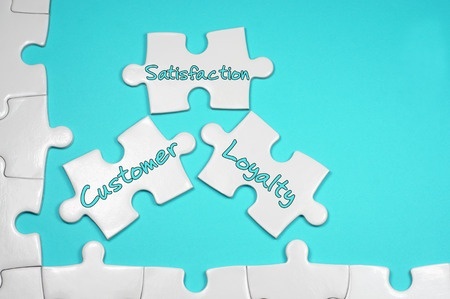All posts by Bob Britton
VUCA? What Does it Mean to Small Business Owners?
 Between market and cultural volatility, ambiguity about the future, and complexity that underpins any decision—entrepreneurs do not have it easy. They call it VUCA.
Between market and cultural volatility, ambiguity about the future, and complexity that underpins any decision—entrepreneurs do not have it easy. They call it VUCA.
What is VUCA?
A term borrowed from military leadership in the 1990’s, VUCA is an acronym for volatility, uncertainty, complexity, and ambiguity. In other words, VUCA is the normal operating environment of a small business owner. Sure, it is crazy world. But it’s more productive to examine the parts rather than become overwhelmed by the whole.
At a glance, the components of VUCA seem to lead to the same conclusion—there is too much to handle, so just do what you can. Much of the time, entrepreneurs are too deeply engaged in helping their business survive the economic roller coaster to apply critical thinking to the mechanism of the ride. Let’s take a look at the pieces:
- Volatility: We live in a culture of change. Those who embrace volatility have a better chance of using its characteristics to build stability. Volatility is identified by its speed, magnitude, flux, surprise, and energetic nature. Information about dynamic factors is usually available, making volatility somewhat…predictable.
- Uncertainty: Frequently confused with ambiguity, uncertainty occurs when information is not available about events, trends, circumstances, or issues. Ambiguity defines a situation, while uncertainty reflects a lack of information about it. Predictable outcomes are difficult when information is uncertain.
- Complexity: All human endeavors are complex. It is only recently that complexity became a business term to describe multiple variables that interrelate to create, or influence, a situation or business state.
- Ambiguity: They say, “the measure of the greatness of a person is their ability to handle ambiguity.” Ambiguity is another common feature of human life, now added to business jargon to describe an incoming atmosphere, or idea, before it makes landfall in structure and definition. It is a thought, situation, or trend, which can go either way, and about which you have almost no information.
The excitement of a VUCA world
When I work with entrepreneurs one-on-one, or in my master group, elements of VUCA are never far from the table. A situation is uncertain, supply or labor is volatile—these are everyday components we deal with on the way to success.
VUCA can be explored from an analytic and a hands-on approach. While many focus on how to survive in a VUCA world, I want to talk about how you can thrive in an uncertain world.
Change is certain—especially in the current business climate. We can accelerate and revitalize our business processes to embrace and use change, rather than defend stale business plans against it. Consider these tips:
- Meet volatility with critical thinking: Resource management and thoughtful leadership are essential during cycles of business volatility. Identify issues—internal and external—that impact your business during volatile market cycles. Create and implement planning processes to protect against financial exposure during an unexpected bump. During periods of volatility, clear communication and intent is essential. Use volatility to better your readiness planning.
- Uncertainty is an opportunity to learn: Information gathering—and sharing—is an important tool for dealing with uncertainty. Uncertainty challenges you to better understand your business, and the business climate. Work with a mentor, or group of entrepreneurs, to gain understanding of uncertain trends, key performance indicators, or market slides. Use networking, and information gathering, to reduce uncertainty, build relationships with experts, and better align your business to take advantage of unexpected opportunities.
- Use complexity to get ahead: Gain a strong understanding of the variables that impact the growth and management of your business. If necessary, work with consultants to understand the interrelatedness of these variables and how you can use factors such as marketing, customer care and analytics to support complexity. A better understanding of complexity may help you to plan new products and services—and reach a ready market faster.
- Use leadership to manage ambiguity: By definition, ambiguous circumstances offer little guidance. Instead, you must develop leadership to creatively deal and experiment with situations that have vague cause and effect. Ambiguous environments become clear over time. Confident leadership recognizes and works to define opportunity that may—or may not—exist within ambiguous settings.
Many small business owners already have the innate ability to recognize and meet volatile, uncertain times. Successful business in a culture of change means developing readiness, and confident leadership, in the face of continually changing circumstance.
When you need a fresh perspective on turbulent factors impacting your business, call me at 585-633-7563.
To your success.
Bob Britton
The Hardest Work You Will Ever Do
 Quick question—as an entrepreneur, what is the hardest work you do? Let me give you a quick answer. As a small business owner aiming for success, the hardest work you will ever do is thinking about your business.
Quick question—as an entrepreneur, what is the hardest work you do? Let me give you a quick answer. As a small business owner aiming for success, the hardest work you will ever do is thinking about your business.
Let’s think about it right now.
What does thinking have to do with being successful?
Entrepreneurs are people who do. People who take action, and harness resources, with confidence that others may not possess. This comfort with ambiguity and need for speed comes through in the adage sometimes used to describe business: “ready, fire, aim!”
In an earlier blog, I talked about the importance of using time to do the things only you can do. When you take the time to do things that should be handled by others—or not handled at all—you make more work for yourself, and run out of time at the end of the day.
Most small business owners do not have an issue with hard work—it comes with the job description. I work with business owners to align their products, pitch, and processes with success. I know from experience that thinking deeply about the business is one of the hardest things for an entrepreneur to do. Why?
Entrepreneurs are always ready to work, to find opportunity, build outside the box, look at mistakes, and try something different next time. Many have no business plan before they are off and running. Here are areas of thought where small business developers excel:
- What is possible? Quick to recognize unprofitable ventures, experienced small business owners have a good sense of what could work. This grounding in realism sets them apart from those with great ideas who will not find their niche.
- Risk taking: By nature, small business owners are willing to embrace risk in order to live the way they want, doing what they do best. This willingness opens doors to products and careers for others.
- Internal vision, external savvy: Entrepreneurs often have a vision, or gut sense, about what they want to create, and how that might work in the current marketplace. While failure weeds out a percentage, many people with a vision move steadily toward that vision over a lifetime, regardless of challenges along the way.
The tenacity, and ability, to move an idea to market is valuable. It also comes easy to many who find their careers in small business ownership. But forward movement in the face of uncertainty only goes so far. What is needed next? Strategic thinking.
Your hardest work might be sitting still
There are a lot of reasons you can find to avoid sitting down to drill into a strategic plan for your business. Practically anything will work to distract you from a hard look at your bottom line. It is not for the faint hearted.
When I meet with a client, I have a pretty good idea of their business inside of 30 minutes. My work is to help them develop a plan—the core strategy for their product, offer, marketing technology, and workforce, among other factors.
I run live events where our master group of small business owners meets in great locations for three days to talk business. Typically our venue is a super house with great food, scenery, things to do—and plenty of time to talk business. Because I keep my live events small, about 10 people, we are able to really get into, and break down, problems that group members face.
While we discuss business and marketing throughout each day, the toughest part of any live event is when we sit down to brainstorm through strategy questions of those present. We take the busy-ness out of thinking about business. Really sitting down to figure out the right moves, reach an audience, identify potential pitfalls—I watch these highly creative people wilt in front of my eyes.
Because entrepreneurs are so good at concept work, frankly addressing, and readdressing, the flat-out business challenges facing each other is intense. More than once, I have had a business owner come up to me afterward, with a great plan in hand, and tell me they never could have made themselves sit down and do this work on their own.
More heads are better than one
I work with entrepreneurs one-on-one, and in groups. There are advantages to both.
Individually I offer small business owners personal attention and clear feedback on their present business state, and future potential. Working with clients, I develop a step-by-step plan by engaging you in deep thinking about how you are working, and what profit you hope to see. You walk away with a plan that relieves your worry, is based on sound business principles, and gives you rock solid direction on where you are heading, and why.
In a group, you safely discuss what works—and what does not work—with people who know exactly what you face. Too often business owners only have a friend, or maybe an associate, to run ideas with. Whether you join a group like mine, or form your own—get the business support you need to exploit your natural creativity. Don’t go it alone.
The hardest work you will ever do is the most rewarding—and what it really takes to be a successful entrepreneur.
When you need a sounding board, or help with your strategic plan—call me at 585-633-7563
To your success.
Bob Britton
Here is Why You Will Never Have Enough Time
What is on your list? And what have you crossed off lately? Oh—you gave up on the list. You are just living in the trenches of too little time, and too much to do. Let me tell you a secret—you will never have enough time.
Not, at least, until you get smart about how to use it.
A lot of attention, business practice, logistics, and personal frustration are rolled up in the concept of time. Young, middle-age, senior, workday, weekend—all words that measure time, underpinned by the general understanding that time flies—fast. You either work with time or it works against you.
Time and the small business owner
Until you get smart about time, you will never have enough of it. Why do I keep talking about getting smart about time? Because as valuable as time is, most entrepreneurs do not see where, how, or why, they are exhausted and falling further behind each day. That is where getting smart comes in. Let’s talk about time.
You cannot make time, but you can spend it, and waste it. My business is to help entrepreneurs become successful. In fact, I aim to make my clients millionaires, work at what they love, and enjoy their lives, too. And trust me, you do not get there without understanding time.
When I work with clients, I check out how they do business, their processes, marketing, automation, products, services, and sales. When I first start working with small business owners, I see a lot of the following:
- Overworked professionals without enough time to tend to business, family, or personal needs
- Entrepreneurs who are not achieving success—even though they are constantly busy
- Owners who are so busy and overworked that they cannot stay ahead, and are in danger of losing their business
Any of this sound like you?
A closer look
Let’s take a look at some of the traits that seem like a lack of time but could be something quite different:
- Addiction: Addiction is a strong word that describes compulsive behavior. An addiction is the thing you cannot “not” do. It is not amusing that some people are addicted to their mobile electronic devices, and it is not helpful that many business people—whether involved in enterprise or small business—are addicted to being…busy. These individuals always have something going, know what is happening next, and literally cannot tolerate a quiet setting and an expectation of doing nothing. While being busy seems industrious, it can also be an excuse to hide the panic that occurs when an individual must stop and address their bottom line. A disassociated need to remain busy has no part in a successful small business plan.
- The difference between busy and effective: I frequently encounter busy executives who never have a spare moment. Because they build their business from the ground up, entrepreneurs are generally engaged in every level of their company. This keeps owners busy—but is not necessarily effective in reaching their objectives. I work with these entrepreneurs to understand how they are spending their most valuable resource—time—on low dollar activities that could be handled by others in their organization.
- Time management: There is no end to the amount of information and advice available to small business owners about time management. From the time we enter school, to when we retire, new processes, ideas, and formulas are touted as the best way to make use of your time. If charting your time, or using an app, works for you, that is great. But the most important thing to understand about time management and business ownership is how to stay in your power zone and make the time you do spend on your business—pay.
What is the power zone?
Your power zone is where you work best. As a business owner, it is your job to focus on the right things, and drive the focus of everyone who works for you. If you are off task, and losing days on unprofitable ideas—your business will suffer. From owning my own business, and in helping other run theirs, consider these important tips:
- Never learn anything you do not want to do for the rest of your life: Time and time again, I see entrepreneurs caught up in the next shiny object. Adwords, social media, marketing online—the next thing that is going to make you successful. If your business is helping people gain leads and traction with Facebook—great—learn Facebook. But if you are running a business, make sure Facebook is something useful to your company, and then use a consultant or specialist. It is completely ineffective to stop running your business to gain half-competencies at tasks that cannot help you—or your business—profit.
- Only do what only you can do: It is tricky—read it again. It means the best time management technique you can employ is to undertake only the jobs and tasks that you—as the owner—can do. It will quickly become clear where your time is going, and what kind of delegation structure should be put in place.
When you are doing what really needs to be done to become successful—you are not entrenched, you are growing your business.
While you cannot make time, you can save it. When you want to make more money from your small business, and spend less time doing it, call me at 585-633-7563.
To your success.
Bob Britton
Is Your Sales Team Costing You Business?
Every sale counts to a small business owner. You train your team, you fine tune your product and marketing, and you are doing okay – but not great. One day a friend mentions that he called your business but was stuck on hold forever. Or worse—he called and your sales representative was not interested in doing business. What gives?
If your sales team does not recognize one simple fact, you need to make some changes. And the fact is this: no one calls a business unless they have a need.
Offer solutions—not a stand off
Earlier in my career, I needed some marketing help. I worked with a company, set up an account, and got things moving. I realized that I did not have my content lined up, so I called the company to let them know I was holding off on my campaign for a few weeks.
In two or three weeks, I was set, and called to trigger the services I set up. The sales rep said my account was cancelled because I had postponed. When I asked if I could reactivate, maybe pay a small fee, the answer was no, my account was cancelled.
Anyone reading this is shaking their head. That blew my mind. Not only did this company not want my business—they argued with me about it. Even after the discourtesy of cancelling my account, I would have paid a fee to get going again. In effect, I was turned down twice.
Never do this. Obviously, I took my business elsewhere. And, needless to say, that company never got a good referral from me.
While the attitude of this sales rep—or maybe the entire company—was way off, there are times when a business does not recognize the signals that a customer, or a client, is ready to buy.
Sales signals—and what they mean to your success
Some entrepreneurs still try to get ahead with hard sales tactics. They employ tricks and tips that push and prod a customer into buying. While you can make a sale this way, it isn’t likely this customer will feel any loyalty to your company. And customer loyalty is one of the keys to ongoing business success.
My job is helping small business owners create and enjoy success. Whether talking about marketing, organizational planning, or business automation, I help business owners recognize and build relationships that work—through effective sales, business structure, and technology.
A big part of my job is helping entrepreneurs cultivate a clientele willing to pay premium prices, for high value, and good service. Success depends on repeat customers who enjoy how they are treated by your business.
Building a sales relationship with a prospective lead takes work and recognition of what signals an interested customer. Consider these points:
• Customer interest: I said it before, and I will say it again. No one is calling your business unless they have a need. On a sales floor, or on the phone, you need to find out about their need. You may—or may not—be able to offer the solution they want, but first understand that anyone who contacts your firm, or your shop, has a need that led them to take the effort to contact you.
• Reward customer interest: When someone calls or contacts you, reward them by listening carefully to what they are saying, and how they are saying it. Your goal is to build a relationship. This means active listening. Be intent on learning their need, parameters for their solution, budget, and timeline. With occasional additional questions—learn everything you need about their problem, so that you can offer a good solution. This means you never interrupt them to insert a sales pitch.
• Watch for signals: The best sales people are those who understand tone and body language. With enough experience, you, and your sales team, can recognize when a customer is signaling they want more information, want to buy—or that that they are not interested. When a potential customer is avoiding eye contact with you, browsing, and generally looking—express interest in them, but do not crowd or rush them. If a client calls about a product, or a customer starts looking carefully at an item—that means interest.
• Offer solutions: On the telephone, in person, or online—respond to the need identified by your potential customer. Once you know their concerns, put together solutions, let them know how that might work—and what that could cost. Work with their response and remember reciprocity is essential to a successful sales environment. Ensure your sales team understands anyone who contacts them is a potential customer. Even leads who do not buy from you today could return next week because they remembered your helpful attitude, information, and interest in their problem.
Sales are critical to small business success. Train your sales team, and fine tune your sales behavior to ensure you are building customer relationships that pay off today—and down the road.
When you need help with marketing, sales strategies, or using marketing automation to nurture client relationships—call me at 585-633-7563.
To your success.
Bob Britton
Marketing MVP? Your Client
I talk a lot about value—how to value your time, and create value for your clients and customers. What about asking clients how much they value you?
In my business, I work with entrepreneurs to grow their profits. Through sound strategy, direct marketing, and business automation, I help each client grow their business to make the money they want. Sound good? A big part of that is working with your most valuable resource—your customers.
How to make your client your most valuable player
Your customer buys your product or your services. They are also your best marketing resource.
Beyond their patronage, consider the essential services your customer can provide to you:
Feedback: When you establish a working relationship with a client, ask them for feedback on your services and products. What works? What doesn’t work? Everyone likes to be asked their opinion and no one—not even you—knows your product better than those who are paying for it. Think about these tips:
- Ask: If customers seem disgruntled, or a service does not sell—take a trusted client to lunch and ask why? In my car repair business, I learned more from watching—and asking—my customers than any other sales method. Small business owners who are afraid to ask for gut-level feedback from their customers are afraid of what they might hear.
- Listen: Your client holds the key to your success—they know what they want, and they will tell you. They know what does not work for them, and they will tell you. Comments in the form of feedback cards, customer satisfaction surveys, and personal outreach let you know what is, and what is not, working with your business.
- Learn: No market analysis offers better insight than customer feedback.
Referrals: A referral from a client cuts your sales cycle in half. A huge part of getting new business is gaining the trust of a potential lead. Cold calls take time, finesse, and sure skill to warm a prospect to the point where they are willing to meet you. A client referral opens the door and invites you into the association of a previously existing relationship. Consider these tips:
- Fear: Asking clients and customers for referrals is a learned skill. Few small business owners are comfortable asking their clients to refer business to them. Remember, when you offer top-notch services and products to clients, it is okay to ask them to be your advocate.
- How to ask: There are many ways to ask for business referrals. When a sale is complete, or a service provided, ask your client if they would mind referring you to business associates who might need your product.
- Reach out: Use social media to ask clients to refer you to others, or to join your LinkedIn network. Post links for clients to leave feedback, or enable them to write reviews on your website.
- Appreciation: Thank all clients who offer referrals. While a personal thank you is nice, a small bonus—gift card, service, or subscription—all go a long way to letting your client know you appreciate their confidence in you.
Turning mistakes into gold: Blunders, foul-ups, and mistakes—they happen to everyone. It is true that a happy customer tells one friend while an unhappy customer tells ten. With the right technique, you can turn that unhappy customer into an ally who tells ten friends how well you handled their situation. Here is how:
- Awareness: Be sure you have multiple channels for clients to provide feedback to your business. Train staff to recognize and respond to customer concerns. Empower managerial and other staff to rapidly and respectfully step forward to help.
- Active listening: Listening to customer complaints and concerns is a big part of customer service. Whether you personally handle the complaint, or it is managed by your staff, ensure the disgruntled customer is given fair time to explain their beef with your business. Willingness to spend time with an unhappy customer gives nonverbal feedback that their problem is important to you.
- Comprehensive response: Real skill is needed to assess and respond to a customer complaint. A “make it right” attitude must be echoed by your actions. Whether it is deeply discounting or waiving the bill, personally walking the customer through a process to ensure they are satisfied, or asking them straight out what they feel is fair—sensitively and thoroughly responding to an angry customer with a legitimate complaint makes a friend out of a potential foe.
- Social media: Monitor your social media channels to respond to Twitter, or Facebook comments about poor service. Be clear that you care and will work with your customer—you will earn new business from it.
These are only a few of the ways your own customers can shorten your sales cycle and keep your business successful. They work in my business, and I know they will work in yours.
When you want to know about client satisfaction and building value that pays off for you, call me at 585-633-7563.
To your success.
Bob Britton
Why Likeability Matters To Your Small Business
I like people. I like to work with people, do good business, and help where I can. If I am lucky, other people feel that I am likable, too—because it matters to the success of my business. Regardless of what kind of business you are in, being likable matters.
Each person has their idea of ‘likable’. Basically, likability is about what you would expect—friendly, engaging, curious, mindful, interested, and interesting. For small business owners, the personal touch matters, and getting your message across means reducing the immediate barrier of first impressions. It all starts with a smile.
Increase your “likes” with these four tips
As an entrepreneur, you know that success is built on a good idea, sound structure and marketing, financial ability, and advanced organizational skills. A big company is largely considered faceless, but one key advantage of small business owners is that they are the faces of their companies. That personal touch can be the difference between success and failure.
To make a deal to sell your goods and services, or buy those of another, demeanor counts. Anyone who has watched Shark Tank knows the Sharks intend to eat you alive – warm and fuzzy is not on the menu. But the reality show is intended to sell ratings, and that it does. In the real world, you have to sell your product—and yourself. So how can you improve your delivery?
Let’s take a look at some keys to presenting a congenial face to your clients and potential clients:
1. What is on the inside? Unless you are a good actor—and you may be—it matters how you feel about your business, your day, and the person sitting across the table from you. There is plenty of research about the psychology of body language and facial expression. While you can practice your firm handshake, relax your voice, and be sure your arms and legs are not crossed, authenticity is your biggest selling point. Humans got to the top of the food chain for good reason – we are born observers who not only passively intuit, but actively watch contextual clues like gesture, eye and facial expression, and body position. Do your best, and be your best. It gets you further than a slick dose of “fake it till you make it.”
2. Empathy matters: Empathy is a higher level human skill. Unlike sympathy, empathy is the ability to genuinely understand and share the feelings of another—even if you have not been in their shoes. Empathy goes a long way to making you likable. No person can be positive, jazzed, and ready to roll at every minute—but they can be empathetic. You may meet someone having a tough day—or a rough couple of years. Do not paste on a smile, tolerate a couple of minutes, and then shift the conversation your way. I am going to go out on a limb here and say, let your client, or customer, talk. Even if they spend time discussing a personal matter of great importance to them—let them talk. People with real empathy are good listeners, and somewhere in there, you will hear what you need to know about this person to help you make your sale.
3. Curiosity: Curiosity is seductive. I find there are few people who do not want to talk about their business. Ask the right questions and scaffold the discussion on those answers. It goes a long way toward likability—and makes you a trusted business connection. I have said it many times before—you need to learn what your customer wants before you can offer it to them. If you are curious about their ideas, vision, and history, they will feel as if you understand them. Being curious about their business also lets you create the perfect pitch based on the free information they just provided.
4. Help first: Remember the slogan, “Commit Random Acts of Kindness”? It is good idea. Create an opportunity, open a door, pass along a contact name—help someone out each day. Being a consistent, trusted resource for others makes you the “go-to,” a highly valued individual inside and outside of your business community. Reach out to others to widen your own network. Not asking for reciprocal favors gives you real power.
There are many tactics, tips, and cues you can use to improve how others perceive you. As a small business owner, genuine interest in others is attractive to those seeking what you have to sell.
Start your day with a smile, and start each phone call the same way. Even when others cannot see you, a smile generates a different business environment for your conversation—one that is…likable.
For entrepreneurs, it is easier to attract the success and income you want, when you feel positive about your direction, and your marketing. When you need sure-fire ideas and a rock-solid business plan, call me at 585-633-7563.
To your success!
Bob Britton
Work-Life Balance for Small Business Owners? No, Really!
You became a small business owner to live your life and career your way. Now your business is your life. Can you be an entrepreneur and still have some kind of work-life balance?
The answer is, it depends.
My definition of an entrepreneur is a person who sets up a business or businesses, and takes on financial risks in the hope of profit. Pretty simple. But being an entrepreneur is also about having the life you want without sacrificing business success.
I work with small business owners. When we meet, many of these entrepreneurs are burned out from years of trying to profit in business and enjoy their lives—and succeeding at neither. It’s not hard to see why.
The business hero model does not support work-life balance
Dedicated to business at all costs, the stereotype of the entrepreneur calls for total economic devotion. In a report in the Wall Street Journal, one small business executive states entrepreneurs cannot have a balanced life. “Successful entrepreneurs derive so much satisfaction from their business that their work is their life.”
This may be the case—as long as it is a choice. Too many business owners—and employees—work long hours for compensation without enjoying the life that passed them by in the meantime.
The recent recession and slow-moving recovery shook up financial markets and world economies. A recent survey from Ernst and Young looked at work-life balance across the globe and discovered the following:
• Globally, almost half of workers who identify themselves as managers are working more than 40-hour weeks.
• Millennials (born between roughly 1980 and 1995) in the United States report having difficulty finding free time for a personal life and even getting enough sleep.
• The top five reasons people quit their jobs are poor wage growth, lack of promotion, too much overtime, lack of teamwork, and not enough work flexibility. The opportunity to build flexibility into a job—and still be considered a valuable, promotable employee—is a high priority in the current workplace.
Some employees, who quit their regular jobs, move on to become small business owners. Eventually they find the same poor wage growth, too much overtime, and lack of flexibility—even when they own the business.
While the sweat equity is all yours, you are the business hero who is still getting home too late to enjoy your children, your spouse, or your life. Work-life balance remains out of reach.
Integration is more important than balance
My passion is working with entrepreneurs like you to find ways to take charge of your business and create the income and flexibility you wanted all along. Consider these points about small business ownership:
• Work-life balance is not important for some: Some entrepreneurs live to work. There is no denying it. These folks are happiest in the middle of a business meeting with the assurance they have another work engagement at 7:00 PM. They are driven to work, whether they succeed or not.
• Work-life balance is important for others: These are entrepreneurs who work to live. Working exceptionally hard, these business owners endeavor to build an economic model, and a life, that fits their dreams.
• Integration vs balance: Integration means understanding the value of your time and how, and where, it is best spent. It means noticing the frustration of employees who deserve promotion to duties that would allow you to move forward with your own plans. And it means bringing flexibility back into the picture—for you, your business, and your workforce.
Is there a process for being successful—and wealthy?
My marketing automation group is composed of successful, wealthy entrepreneurs who were once struggling small business owners. Overwhelmed by longtime efforts to succeed, and suffering from personal burnout, many of these entrepreneurs just did not know where to turn.
In working with these and other business owners, I offer a unique experience that can be used by anyone to achieve the success—and the life—they want. That experience includes three steps:
• A roadmap: By discussing and delivering an action plan specific to your business, I help you see where you are, and where you want to be. Whether your issue is lead acquisition, employee management, outsourcing, automation, or fulfillment, you get the plan you need to achieve success—and work less.
• Personal interaction: Buying into products and ideas goes nowhere if you do not have the mentoring you need. Our work groups meet together for serious business and play during our three-day live events. Bring your specific problems to the table and hear the advice of business owners who were once where you are now. Get tips, techniques, and technical tools specific to your business needs—and enjoy supportive relationships with people interested in helping you.
• Guidance: My business is building your business. That means I offer ongoing guidance to help you remain focused on critical issues and objectives we identified in your action plan.
When you want to shift from struggle to success, I hope you will call me at 585-633-7563.
If you don’t, just remember the three keys you need to make more money and work less hours. Those keys are an action plan, mentoring from people who have been there, and solid business guidance during the bad—and good times.
To your success.
Bob Britton
Small Business Success: Taking Advantage of Where You Are

Recent headlines reveal an uptick in the economy for small business owners. If the economy is improving, isn’t this the time to get smart about creating success for you and your business?
In May, the National Federation of Independent Business (NFIB) released its small business employment report. The survey reflects feedback from small business owners like you. Some key points of the report include:
- Employment is up: Twenty-seven percent of small business owners who responded to the survey said they are having some difficulty filling job openings for qualified workers.
- Economic indicators: NFIB evaluates on ten criteria, including credit conditions, job openings, and capital outlays. Upward trends are seen in nine of those ten indicators.
- Business optimism: The Small Business Optimism Index rose 1.7 points, the highest since December of last year.
Does this mean the business climate is the best ever? No. But it does mean you have a fighting chance of making it the best business climate for you—and your company.
Why are you here?
My job is to help my clients develop a structured, creative mindset and business plan. It takes both to achieve success as a small business.
Success means something different to each business owner, but for me, it has to do with using your time to do what you love, and what you are good at. Success gives you a chance to offer value to clients, customers, and employees in a way that sustains your business—and your vision for your life.
Entrepreneurs have reasons for being where they are. Small business owners work hard to define what they have to offer, and what they hope to earn. Business owners usually get into their line of work for motives that include:
- Taking charge: Most small business owners want to create and run an enterprise under their control. That enterprise looks different for each entrepreneur. Technically, a small business is a company employing 500 or fewer employees. Whether working as individuals, or in groups or teams, most business owners hope to create maximum financial success on their own terms. As Abraham Lincoln said, “The best way to predict your future is to create it.”
- Pursuing a passion: For many people, career choices are innate. During early, or mid-career, there comes a moment of realization when you know what you want to do, and how you might do it. The proclivity toward a particular field might be so strong that it is impossible to ignore. For others, years spent working in one area, then another, builds toward an obvious decision to create a small business.
- Taking risks: Owning a business is generally not for the timid or those unable to handle change. Depending on your industry, the small business model gives entrepreneurs mobility that larger companies do not have. Taking a chance to succeed—or fail—helps small business owners learn and build confidence. When the now-defunct anonymous social app, Secret, was shuttered in April, co-founder David Byttow ironically noted, “I believe in failing fast in order to go on and make only new and different mistakes.”
- Choice: When your name is on the paychecks, you have more risk—and more choice. Do you want to keep your business small or grow it larger? Take advantage of new tech or different social media funnels? Retire in 20 years or five? Take that vacation you promised your family? Risk confers choice, and when you make good choices about building and maintaining your business, you get to live life the way you want.
How to get where you want to go in business
Everyone wants to make money doing what they love—but most people need help to get there.
Most people believe small business ownership means a long struggle to succeed. Part of that is true. Only about a third of small businesses launched in any year will survive for 10 years.
The economy is improving and you already own a small business—or maybe you are just starting out. How do you improve your odds?
The mandate of my company is to help yours. From the big picture to the small details, I help you understand the real meaning of value—of your time and your product. Instead of working harder, our group helps you work better in ways that include:
- Investigate and revise your big picture
- Relieve the frustration of being overworked and underpaid
- Understand the worth of your own time and what else you can offer to customers
- Understand the secrets of building a responsible, capable workforce
- Learn technology and marketing methods to serve your goals
According to one survey, leading strategies for small business growth in 2015 include:
- Improve and expand your client base through better customer service
- Reach out to new customers
- Bolster your bottom line by offering new products, or seek new markets
It’s a great time to be an entrepreneur. When you want to thrive—not just survive—as a small business owner, call me at 585-633-7563.
To your success,
Bob Britton
In the Marketplace: Never Be the Cheapest
In the marketplace, there are three price spaces you can occupy—the cheapest, the middle ground, and the most expensive. Take it from me, never be the cheapest vendor in your marketplace.
Price is a dynamic factor in small business success. As I discussed in a recent blog, charging more—not less—is essential for business stability. Along with that is taking control of your position in the marketplace.
No formula for success: cheap, cheaper, or cheapest
Entrepreneurs who reactively position their business in the marketplace lose control of their message, their product, and their profit. Why? I’ll tell you.
It is not just new entrepreneurs looking to break into the market who price their products and services too low. Small business owners hang on to inappropriate pricing structures for years. When fear drives your pricing behavior, the outcome looks like this:
- Deep discounts
- Price haggling or lowball bids
- Unrealistic cost and expense accounting
- Pricing that responds to external factors instead of internal decision points
- Low wage and almost no profit
- Inability to grow business or add value
For almost all small business owners, occupying the cheapest niche in the marketplace is a bad place to be. The only time this strategy works is when you can realistically obtain good profit by undercutting the competition. Typically, the success of this tactic is of short duration and not for owners interested in building out their business.
The view from the middle: no end of competition
Some small business owners seek the middle ground. When the bids come in, or a customer browses your product, your prices are not the cheapest—nor are they the highest. This is a sweet spot for many clients and consumers if the buzz about your products and services is good.
But is this where you really want to be? Consider the view from the middle:
- Your pricing formula must remain fluid, depending on the season, the client, and the project.
- Sales personnel must be ready to lower prices, or cut a deal, when a potentially valuable customer threatens to walk. Keep in mind—they may walk, anyway.
- Frustration is the condition of the middle. You are constantly competing with everyone in that space—and most businesses are in that space.
- Profit margins are thin because everyone is price cutting to get the business.
- Like the cheapest vendor on the market, your prices must stay reactive, you do not see much profit, and you work very hard for whatever you get. It is not easy or guaranteed that you can grow your business from this position.
If you choose to be either the cheapest on the market, or the average business, there will always be someone willing to provide the service, or the product, for less—even if it eventually drives them out of business.
Middle ground entrepreneurs satisfy themselves thinking slow and steady wins the race. It doesn’t. Slow and steady too often means undercapitalized, which is a prominent reason for small business failure.
My clients are small business owners interested in making more money. It is my job to evaluate what they are doing, and how they are doing it. My ambition is to make my clients millionaires. They do not do this by working harder—they do this by working smarter.
Top tier: how do you get there?
Small business owners who work in the trenches of cheap and cheapest do not have control of their businesses—or their future. Overwhelmed, undervalued, and underpaid, you may sign the checks, but your blood pressure and debt load is giving you a different message.
I am here to tell you that you are not alone and you can succeed. But you cannot have the business—and the life you want—without change. And that starts with realistically resetting your price points by defining your own value.
Let me tell you a story. When I was running my car repair business many years ago, we were charging 20 percent more than even the local car dealerships. That 20 percent let me do more for my customer than other repair shops. The result? I could offer advantages, like free loaner vehicles—a perk that worked—and increased my business and client loyalty.
The take-home point is that meaningful value sells. It is not just a mind game of charging more, of mark-up as make-up. It is offering real, calculable value where your customer needs it most. Trust me—charging more lets you offer more value.
Charging higher prices for valuable services results in business conditions that look something like this:
- Growth and pricing goals are set and met
- Sales and service personnel take on more responsibility
- You get to focus on what you do best—and living the life you want
Sound good? That’s because it is good—and there are small business owners just like you redefining their prices, their value—and their lives—every day.
When you are ready to take control of your business, bump your sales, and take a long lunch without guilt—call me at 585-633-7563. I will help you get there.
To your success,
Bob Britton
The Art of the Telephone Sales Call: Always Be Closing
When you know where you are going with a sales call, the chances are better that you and your client will get there. How? It’s as simple as ABC—always be closing.
Companies of all sizes are shifting from field sales to internal sales teams that are able to scale quickly to a new project or prospect. You and your sales department need a script and a structure to keep telephone sales productive.
As an entrepreneur, you are the face and voice of your business. You must have the awareness and ability to take advantage of a business opportunity whenever it calls. And that call may be tomorrow morning.
Making the connection: internet to telephone
Social media keeps your brand fresh and your name in play. While LinkedIn increases your potential sales pool, it does not make the sale for you. Regardless of your industry, each point of contact—social media, direct mail, email, or telephone call—adds to the perception of your company in the mind of your client.
Email and telephone calls are the primary points of contact for targeted sales leads. Before you pick up the phone, be certain about these points:
- Know who you are calling: Do your homework before you dial. Know who you want to talk to and why. Use LinkedIn for personal research, and the internet for business background. Know as much about your lead, and his or her business, as you can. Whether you make a cold call, or a scheduled sales call—make sure that your contact knows you are tuned in to them, and their business issues.
- Know your own business: Before you make the call, take stock. Use a headset to free yourself up to physically move during a conversation. Be familiar with your current business numbers, your vision, what you need from the call, and what you want as a result. Take time to refresh your business vision and your confidence—it improves your odds for success.
- Make sure you can talk the talk: Understand and appropriately use the language of your industry. Sale calls sometimes falter when reciprocity cannot be created through the use of common jargon, topical news, industry trends, and relevant stories.
- Have a plan: “Winging” a sales call does not work. While you may strike gold from time to time in an informal sales setting, you make more money when you take the time to make your plan. Sketch an agenda, unique points about your prospect, and your own market differentiators. Imagine the conversation, walk through possibilities, and see yourself closing the deal. If you do not have a process in mind when you make a sales call, you leave money on the table.
Making your best call
Service and sales calls are lifeblood for a small business owner, and they are easy to mess up.
When you have a good lead, make the most of it. When you pick up the phone, make sure you remember these tips:
- Smile: Why does it matter if you smile on the telephone? Including endorphins, smiling boosts other neurotransmitters that mediate mood, blood pressure, and heart rate. You experience a boost in confidence and greater overall relaxation. Even if no one sees it, set the stage for your sales call with a smile.
- Connect: When speaking with a prospective client, let them know they are your most important priority. Because of your research, you know something about them, and their business. Comfortable, confident rapport heightens your credibility.
- Learn: Listening is a key feature of a successful sales call. Ask open-ended questions that reassure, and encourage your lead to discuss their company, and their business issues. Explore without pushing your own solutions. Information gained while actively listening to a potential client gives you the roadmap you need to offer value and close the deal.
My job is working with entrepreneurs to create strategies and structure to make them more money. I create value in the lives—and businesses—of my clients by helping them define and boost the value they offer to their own customers.
The take-away point is that you must shift the central see-saw of your sales call from a conversation about price points, to a meaningful discussion about value. Find out what your client values, what they need—and how you can provide it.
When you approach a sales call with confidence, and genuine curiosity, it shows. If you do your homework, you already have the end game in mind. Remember, always be closing.
When you want to learn more about closing deals and boosting sales, call me at 585-633-7563.
To your success,
Bob Britton








